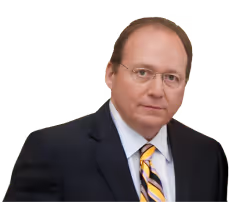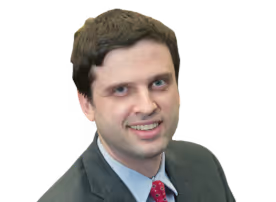Understanding Your Legal Rights After a Tesla Autopilot-Related Injury or Death
A deadly crash in Key Largo, Florida, involving a Tesla Model S equipped with Autopilot has renewed serious concerns about the dangers of self-driving technology and the responsibilities of automakers when their systems fail. On April 25, 2019, George McGee was driving a 2019 Tesla Model S at approximately 62 miles per hour when he ran through a stop sign and a red light before slamming into a parked Chevrolet Tahoe on the roadside. Standing beside the Tahoe were Naibel Benavides Leon and her boyfriend, Dillon Angulo. The collision killed Benavides Leon, allegedly throwing her 75 feet, and left Angulo with serious injuries.
What makes this case especially alarming is that McGee admitted he had dropped his cell phone and looked down to retrieve it. Despite this distraction, the vehicle’s Autopilot system—designed to assist with safe driving—reportedly failed to issue any alerts or take corrective action before the crash. This has triggered a wrongful death and injury lawsuit against Tesla by the estate of Benavides Leon and Angulo.
Federal Judge Allows Tesla Lawsuit to Proceed
On June 30, 2025, U.S. District Judge Beth Bloom ruled that the plaintiffs may proceed with their claims against Tesla, including allegations of a design defect, failure to warn consumers about Autopilot’s limitations, and a demand for punitive damages. The judge rejected Tesla’s motion for summary judgment and found that the plaintiffs had presented sufficient evidence to warrant a trial.
Judge Bloom emphasized that McGee’s negligence did not absolve Tesla of its own legal responsibilities. McGee is not a defendant in the lawsuit. The court noted that McGee expected the Autopilot feature to prevent the crash, underscoring the widespread misunderstanding many drivers have about the actual capabilities of Tesla’s driver-assist technology.
This ruling sends a strong message to both consumers and automakers: The companies behind advanced driving systems must ensure that their technology is safe and that users are adequately warned about its limitations. Failure to do so can result in tragic outcomes and significant legal liability.
Autopilot System and Driver Misconceptions
Tesla has consistently stated that Autopilot is intended only for use by attentive drivers who keep their hands on the steering wheel and remain fully engaged. Despite these disclaimers, the branding and marketing of Tesla’s driver-assistance technology have led many to believe that the vehicles are nearly autonomous.
This misconception has been central to numerous lawsuits and investigations. In this case, the Autopilot system allegedly failed to warn McGee or take any action to avoid the collision. If proven, this type of system failure could represent a design flaw with potentially life-threatening consequences.
Moreover, the vehicle’s owner’s manual and digital interface may not provide clear, accessible warnings about the limitations of Autopilot. Judge Bloom specifically pointed out that the risks posed by Autopilot may not be readily understandable through the on-screen Model S manuals alone. If warnings are buried in technical language or digital menus, that could support claims of a failure to warn.
Product Liability and Wrongful Death Lawsuits Against Tesla
Product liability law allows victims and their families to pursue compensation when a defective product causes injury or death. In cases involving Tesla’s Autopilot system, the legal focus is often on whether the system performed as intended and whether the company adequately informed consumers of the risks.
Design defect claims argue that the Autopilot system was inherently unsafe when used as intended. A failure to warn claim focuses on whether Tesla properly communicated the risks to users. In this Florida case, the court agreed there was enough evidence for a jury to decide if Tesla’s technology and warnings were insufficient.
Families who have lost a loved one or individuals who have been injured in similar crashes may have strong grounds for filing a lawsuit. These cases can result in compensation for medical bills, funeral expenses, loss of income, pain and suffering, and punitive damages designed to hold companies accountable for reckless conduct.
The Role of Punitive Damages in Holding Tesla Accountable
Punitive damages go beyond compensating victims. They are intended to punish egregious corporate behavior and deter future misconduct. In this case, the court ruled that the plaintiffs may pursue punitive damages against Tesla, suggesting the possibility that Tesla’s conduct rises to the level of willful disregard for safety.
Punitive damages may be available if a company knew of a defect or danger and continued to sell the product without adequate safeguards or warnings. The court’s decision to allow this claim is a clear warning to manufacturers of emerging vehicle technologies: transparency, testing, and responsible implementation are not optional.
Why Victims Nationwide Should Pay Attention
Tesla is not just any automaker. It leads the industry in promoting semi-autonomous driving features, and its vehicles are among the most recognizable on the road. That means when Tesla’s technology fails, the impact is far-reaching.
The issues raised in this Florida lawsuit are not isolated. Tesla’s Autopilot has been linked to other crashes, some fatal, across the United States. As a national car accident law firm, we understand how dangerous these crashes can be and how confusing it is for victims and their families to navigate the legal aftermath.
Legal action can help uncover important facts, hold companies accountable, and recover financial compensation that families need to move forward. If you or a loved one was injured or killed in an accident involving a Tesla vehicle using Autopilot or Full Self-Driving technology, legal options may be available.
Contact Parker Waichman LLP For a Free Case Review
If you or a loved one was harmed or killed in a crash involving a Tesla vehicle using Autopilot or Full Self-Driving features, you may be entitled to financial compensation for your losses. Parker Waichman LLP is currently investigating Tesla Autopilot failure cases nationwide. Our car accident attorneys are here to help victims and families understand their legal rights and options. We offer a free and confidential consultation. Call 1-800-YOUR-LAWYER (1-800-968-7529) today to speak with a national product liability attorney about your potential claim.


































